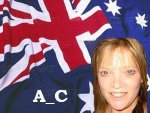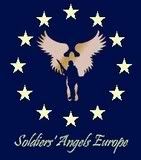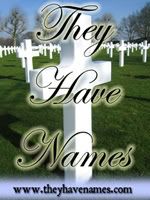| Andrew Bolt returns from Iraq and Afghanistan and gives his perspective of what's happening with Aussie troops on the Frontlines: I'VE COME home from another trip to Iraq and Afghanistan to read the Anzac Day thoughts of fashionable opinion-makers. From pacifist and Age writer Tracee Hutchison: "I don't know anyone who would have volunteered to fight in a war as a teenager." From National Living Treasure and cartoonist Michael Leunig, sneering at the values defined by our soldiers: "Australian identity further defined in Iraq - 650,000 Iraqis killed." And from Labor leader Kevin Rudd again that claim that Iraq is a disaster from which we must withdraw our combat troops. With so much talk of brutal Western soldiers slaughtering Muslims in yet another useless war, no wonder some teenage girls felt driven to allegedly paint "murderers" over Bathurst's war memorial on the eve of Anzac Day. How strange all this vitriol, given what I'd just seen and heard. But rather than lecture, let me describe. Here are snapshots from my trip, which might help explain why I won't join those screaming doom and despair. It's a strange way to leave, given I'm off to visit troops in the Middle East, fighting Islamist terrorists. Don't mistake me: the taxi driver is a funny, peaceable bloke. It's just that this Lebanese Muslim refugee has named his son Hassan after the head of Hezbollah, listed here as a terrorist group. I reach our base in one of the Gulf states - which I can't name - and jump into one of our two Hercules transports there. I'm with Defence Minister Brendan Nelson and Lt-Gen Ken Gillespie, vice chief of the Australian Defence Force, bound for Afghanistan, and . . . bugger. A warning light flashes mid-flight. By the time we reach Kabul in another plane, we're hopelessly late. Brigadier Michael Crane, who heads our forces in Iraq and Afghanistan, knows dozens of NATO soldiers have been kept for hours up on the mountains around Kabul airport to protect us from rockets and small-arms fire. He apologises to the Belgian deputy commander, who tells him not to worry: "There are 45,000 of your countrymen in graves in my country. Whatever you want, I shall do my best to give it." Our military public affairs officer in Kabul is excited. He reckons a local TV boss may go for his latest idea for winning hearts and minds. It's a series of Backyard Blitz in Afghanistan - starring Australian soldiers. Our troops are in fact already doing that very job, but without the cameras. They know the big reconstruction projects promised by the Europeans will take years, and locals need faster proof of our good intentions. So they're out in villages, erecting awnings or fixing a hole in the mosque, helped by some of the dozens of Afghans we train in electrics, bricklaying and plumbing. When the Taliban ruled, girls were banned from classes. Now the Afghans we train build desks for a new girls' school. But the Howard Government isn't sending another 400 soldiers - many of them SAS - to dusty Tarin Kowt just to build desks. We had some 250 SAS soldiers here to hunt the Taliban until the Government pulled them out last September, trusting to 1600 Dutch soldiers to take over. Two officers who have liaised with Dutch forces say they see this as a chance to redeem the reputations their army lost at Srebrenica in 1995, when 400 Dutch peacekeepers guarding a United Nations "safe area" stood by as Bosnian Serb forces murdered 8000 Bosniak civilians. But Dutch discipline isn't what it was. And the Dutch public -- like so many Europeans -- faints easily at the sight of blood. The Leftist opposition wants to pull out. So the Dutch troops have orders not to go chasing too hard for Talibani, or to shoot unless very sure their targets are on a list of wanted men. That's not how our SAS did the job. They aggressively harassed the enemy before they could settle, or even sleep. Think how we play Test cricket, and add guns. Not surprisingly, the Taliban are back in business around Tarin Kowt, so our SAS are returning to deal with them in un-Dutch ways. Neither Nelson nor Gillespie want me to put the case that bluntly. It just gets our Dutch allies upset. Gillespie concedes "the Dutch have a different approach to the one we'd take". But he insists "the Dutch are brave" and fight if they must. He adds that he'd like to say as much of the Italian, German and French troops, "but I can't compare them because we haven't seen them in that environment". He smiles. He means that all the other Europeans in Afghanistan - other than the British - keep their troops in the calm north, where there is no fighting to be done. So Europe declines. We fly into an airbase in another Gulf country. The Canadian flag is at half-mast - the country has lost its 54th soldier in Afghanistan. We can't keep being so lucky. Off again, this time to Tallil, our new base in southern Iraq, where we have about 500 soldiers. Nelson gives his standard speech to the troops: No group of Australians has done more to define our values than the men and women in uniform. Captain Adel Amin grabs his hand. "It's an honour to do something so worthwhile," he tells the minister. The Egyptian-born Amin is one of only 17 known Muslims in our defence force, and is fluent in Arabic, so he does the interpreting. He tells me none of his relatives or friends have ever criticised him for helping the coalition in Iraq. Even the local sheiks are grateful for Australia's help, he says. "They are not condoning, not supporting the terrorist attacks at all." Yes, Iraq is as bureaucratic and slow to change as any Middle Eastern country, he says, "but there are a lot of individuals who want to be democratic. There is a real progress being made in Iraq. It will just take time". If there's one thing the sheiks would prefer it's that we send more aid and trade, rather than guns. A major says he's frustrated we don't help more. "We really need 1000 men here," he says, "but the public won't accept it." And he'd like the extra soldiers to help Iraqis build things like rainwater tanks and all-weather roads. Right now we have just two soldiers there spending $1 million a year on such work. Back in a Gulf state, and for the first time a soldier, a medic, asks Nelson after his speech an angry question: "Why aren't we doing more to help? We don't do enough." We are with 400 soldiers of a reconstruction task force just rotated out of Tarin Kowt, and half a dozen tell me they are frustrated they were not allowed to chase the Taliban as the SAS does and the Dutch often won't. "It's embarassing," says one captain. "We could do so much here," says another. They tell of being forced to return to base at night after working on village projects, only to have the Taliban sneak in to destroy them. Gillespie tells me our soldiers have their own jobs to do, and chasing off the Taliban is to be left to the Dutch. "Sometimes they are so keen to do something, we have to hold them back. But we owe that to the mums and dads of Australia." The soldiers aren't convinced. They think the Government is too scared of casualties. And the public. Soldiers going home are first given psychological debriefings here. The most common trouble the ones leaving Afghanistan admit to? Coping with the brutality with which some tribal Afghans treat their children and wives. Trying to handle seeing eight-year-olds selling themselves for sex. Two Australian doctors say that in six months they've treated plenty of Afghan men and children, but only two women have ever been allowed by their men to ask for their help. One woman was seen at the camp gate haemorrhaging from labour, but before she could be picked up by soldiers village men had taken her away to bleed to death. The head of our SAS platoon gives us the usual security checklist for our trip to Baghdad. There's one change from the last time I was given this routine, 16 months ago: now there's a risk of exploding tankers of chlorine. We've landed at Camp Victory, Baghdad, the huge complex of palaces and lodges built by Saddam Hussein and now a US base. There are not enough helicoptors to fly us all into the fortified Green Zone, 12km away, so the most dispensable must go in Light Armored Vehicles down the notorious Route Irish, where a US vehicle was shot at only the day before. As we drive - fast - into the city, two of the crew and their ethnic Asian commander swing their guns to deter pot-shots. "You sometimes see shopkeepers duck for cover, which makes me feel bad," says one. He says in some suburbs people cheer our soldiers, "but in others they just spit". Nelson and Gillespie are visiting the widely admired US commander David Petraeus and Iraq's Prime Minister, Nouri al-Maliki, so I go on a tour of the Green Zone in a LAV. I see again Saddam's savage memorial to his "victory" in his war on Iran - two pairs of giant swords crossed over a broad avenue, with the helmets of Iranian dead half-buried in the road to better wipe your boots on. Maliki ordered the momument be pulled down a month earlier, but the Americans joined Iraqis who thought this would destroy history, or inflame Sunnis, and begged him to stop. But souvenir hunters have continued what was started and some helmets and a giant hand are gone. Bye-bye Saddam. I see a small sign of Iraq's strong economic growth, conservatively estimated by the World Bank at 4 per cent. On my last visit to the swords I found just two souvenir sellers, standing over a blanket of old currency and "Greetings from Baghdad" T-shirts. Now there's a long tent, stuffed with everything from knives to hookahs. Petraeus shows the Australians intelligence that gives them extra hope. Attacks by Sunnis and Shiites against each other are down. The civil war long gloated over by many journalists refuses to break out. But suicide bombings by al-Qaida are way up. An attack a week earlier killed 140 civilians. Maliki later confirms what Petraeus also believes: Iraqis are becoming exhausted by the violence and disgusted by al-Qaida. In the troubled al Anbar province, the sheiks are siding with coalition forces to fight al-Qaida. Nelson found Maliki more authorative this time, and is more hopeful of success in Iraq than he was: "We're 10 per cent of the way . . . but do we have the moral strength to persevere?" I ask Gillespie if Iraq can be won. "I certainly feel there have been signs of hope," he says. "I've never been one of those who thought this was something we couldn't win. The question is whether we will be given time to win." I've travelled to the Lone Pine cemetery at Gallipoli for Anzac Day. Gillespie sees me there, and reminds me of the soldiers who'd complained they wanted more freedom to fight. He tells me three of his men at Tallil have just been injured in an attack on their patrol. He describes every injury. I later watch him recite those famous lines to a reverent crowd of Australian mourners: "They shall not grow old . . ." And as he does, he gestures to the great monument listing the "they" -- our young dead. Gillespie joined the army as a 15-year-old apprentice bricklayer and it shows in fine ways. Nelson chokes all the way through his own tribute to the fallen Anzacs. And so I'm home, driven from the airport by a Somali refugee who fled the kind of violence we're trying to stem. I'm back hearing the defeatism, the complaining, and the sneering. But I think of the job those men and women or ours in the Middle East are doing, and the good heart and optimism they show as they do it. All I hope is that they stay safe, and that we give them time to finish what so many told me was worth the doing, and none said they doubted. |
A_C



No comments:
Post a Comment